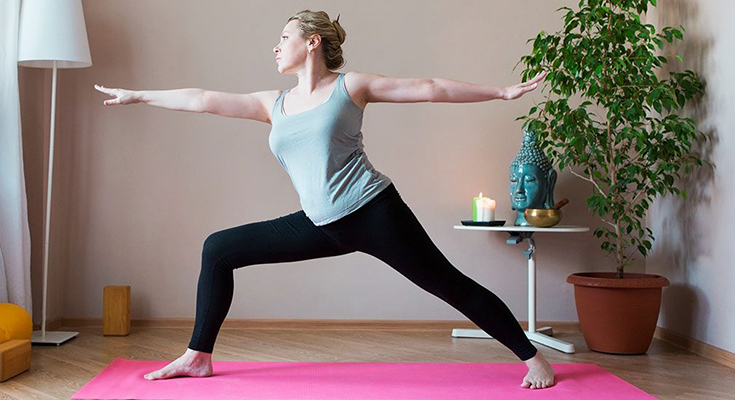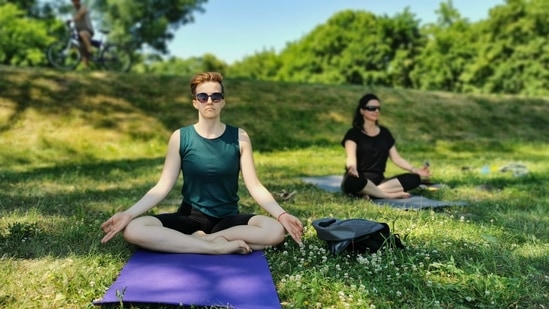Yoga has been practiced for thousands of years as a way to achieve physical and mental wellbeing. It incorporates a series of postures, breathing exercises, and meditation techniques that promote relaxation, flexibility, and strength. Mental health, on the other hand, refers to our emotional, psychological, and social wellbeing. It affects how we think, feel, and act in our daily lives. While there are many approaches to improving mental health, yoga stands out as a simple and effective method that can benefit individuals of all ages and abilities.

Benefits of Yoga for Mental Health
Stress Reduction: One of the most significant benefits of yoga is its ability to reduce stress levels. Stress occurs when we experience physical or emotional tension resulting from a challenging situation. That helps to alleviate stress by slowing down the nervous system and enhancing relaxation. It also promotes the release of endorphins, the body’s natural mood-boosters, which can enhance feelings of wellbeing.
Improved Cognitive Function: It has been shown to enhance cognitive function by improving focus, attention, and memory. These benefits may be due to the promotion of relaxation, which can help to reduce distractions and improve concentration.
Increased Self-Awareness: Self-awareness is the ability to recognize and understand our emotions, thoughts, and behaviors. It promotes self-awareness by encouraging individuals to be mindful and present in the moment. This awareness can lead to a deeper understanding of oneself, which can promote positive changes in behavior and mental health.
Improved Mood: A regular yoga practice can help to improve mood by reducing anxiety and depression symptoms. Yoga’s focus on mindfulness and relaxation can help individuals to process challenging emotions and develop coping strategies. That may also promote the release of GABA (gamma-Aminobutyric acid), a neurotransmitter that can reduce anxiety.
Different Types of Yoga
Hatha: That is a gentle practice that focuses on basic postures and breathwork. It is an excellent starting point for beginners or those seeking a more relaxed form of yoga.
Vinyasa: It is a more dynamic form of yoga that involves flowing from one pose to the next. This practice can be more challenging than Hatha and is better suited for those with some experience.
Ashtanga: That is a more structured form of yoga that follows a set sequence of postures. This practice is ideal for those seeking a challenging and rigorous workout.
Bikram: Also known as hot yoga, it’s practiced in a heated room and involves a set sequence of 26 postures. This practice can be challenging and may not be suitable for individuals with certain health conditions.
Kundalini: It is a more spiritual form that involves dynamic movements, breathwork, and meditation. This practice is ideal for individuals seeking a more profound connection to their spirituality.
Guidelines for Starting a Yoga Practice
Find a Class or Instructor: A good classes can be found at local gyms, studios, or community centers. Working with an experienced instructor can help ensure that you are practicing safely and correctly.
Start Slowly: Like any form of exercise, it’s essential to start slowly and gradually increase your practice’s intensity. Be gentle with yourself and take the time to allow your body to adjust to the new form of movement.
Choose the Right Type of Yoga: As stated above, there are many forms of types to choose from. Consider your experience level and physical condition when selecting a practice that is right for you.
Conclusion
Yoga is an ancient practice that has many benefits for mental health. This practice’s mental and emotional benefits can help reduce stress, improve cognitive function, increase self-awareness, and improve mood. Starting slowly and choosing a practice that is right for you is essential, but the benefits of a regular yoga practice are worth the effort.






